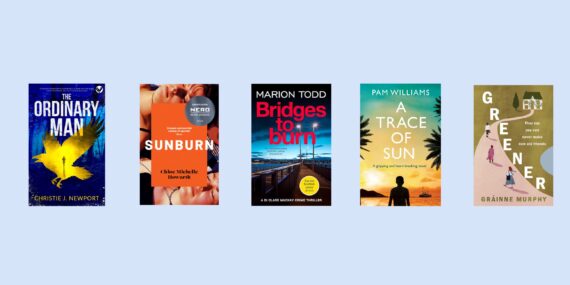
Fiction & Drama
New Northbank fiction in 2024
04/01/2024
Right after I graduated from university I moved to Rome with one friend, one rucksack, and one enormous suitcase. The suitcase was jammed with (most of) my clothes, two pots, a frying pan and a couple of ugly tin cups that even a seasoned camper might be too embarrassed to use in the wild – but which, I had been told were indestructible and would most certainly survive the journey. I decided that I needed all that stuff because I was moving forever… pursuing every expat’s dream of a new beginning in a foreign land. So, I informed my family that I wouldn’t be home for Christmas because I’d most likely be skiing in the Italian Alps with my new Italian friends.
Sadly, my first foray into living abroad was not to end well. Having spent more time playing tourist and eating copious bowls of spaghetti carbonara than we did pursuing teaching jobs, we ran out of cash and were faced with the humbling reality of taking the bus home to Ireland. Hardly the glamorous adventure we had sought out, but the experience gave me two things: a refined understanding of the importance of a good work ethic and the beginnings of a lifelong love affair with Italy.
Fast-forward many years later, one rainy Sunday I read and immediately ripped out an article from a travel magazine about a sleepy fishing village called Camogli, on Italy’s Ligurian Coast. It took me about two years, but I finally got there. The sight of this magical spot, off the tourist-beaten track and encompassing every wonderful thing about Italy (local food and wine, jaw dropping coastal views and decadent sunsets that never failed to delight for Aperol Spritz o’clock on the terrace) made me catch my breath in awe, and caught my imagination in ways I couldn’t then understand.
I’ve managed to return almost every summer since, shunning the idea of exploring new countries in exchange for the guaranteed magic of a week on the Ligurian Coast. On one recent trip I found myself fantasizing about the temptation of not going back to reality, but instead irresponsibly but resolutely shrugging off the shackles of everyday life and deciding to stay. The seed for The Italian Escape was sown! As I wandered around Camogli I imagined the protagonist, Niamh Kelly, experiencing it for the first time, intoxicated by its charm. I imagined her eating at the restaurants, having aperitivi on the terraces at sunset, taking boat rides to other secluded spots along the bay. Her character became more real to me every day and I started scribbling random notes on the back of restaurant receipts and scraps of paper.
Of course the average human won’t just decide to change their life so inconsequentially, so there had to be a compelling event forcing her decision. I imagined her to be running from something, making the bold choice to leave behind something or someone, in favour or in search of something more, something better, uncertain of the future but confident that there had to be more to life than this. In Niamh’s case it was having the life she thought she wanted pulled from underneath her. With her job and her relationship inextricably linked she finds herself reluctantly marooned from both but ironically it gives her the sense that perhaps she has nothing further to lose!
Having lived and worked in six foreign countries, I know first hand how the initial excitement and enthusiasm can fray at the edges when the frustrating realities of getting your new life in order set in. I also had a whole host of ‘did that actually happen’ anecdotes to tap into from my own misadventures abroad. So, as the word count stacked up and the unwitting, reluctant protagonist set off on her journey in search of a new life in Italy, I knew just how insecure and uncertain she might feel and how she’d second guess her decision on a daily basis but refuse to give up.
I was literally getting to rewrite the script and this time it was not going to end in humiliation in the back seat of a bus. Surely Niamh Kelly would do a better job than I had and not be forced to return home and admit defeat? After all, what is the point of all that life experience if we can’t put it to good use and help guide and advise those coming behind us? In this case the beneficiary of all that hard-earned wisdom might be a fictional character, but by the time I got to the bottom of one hundred thousand words and had a completed manuscript, she certainly felt real to me!